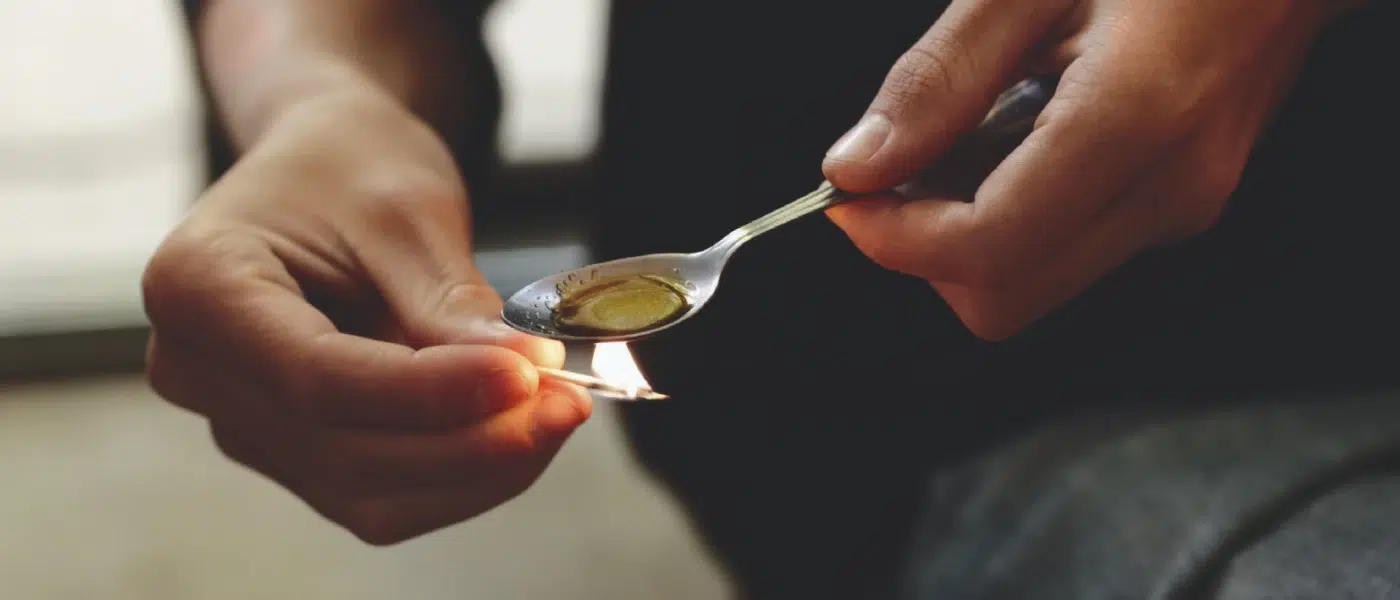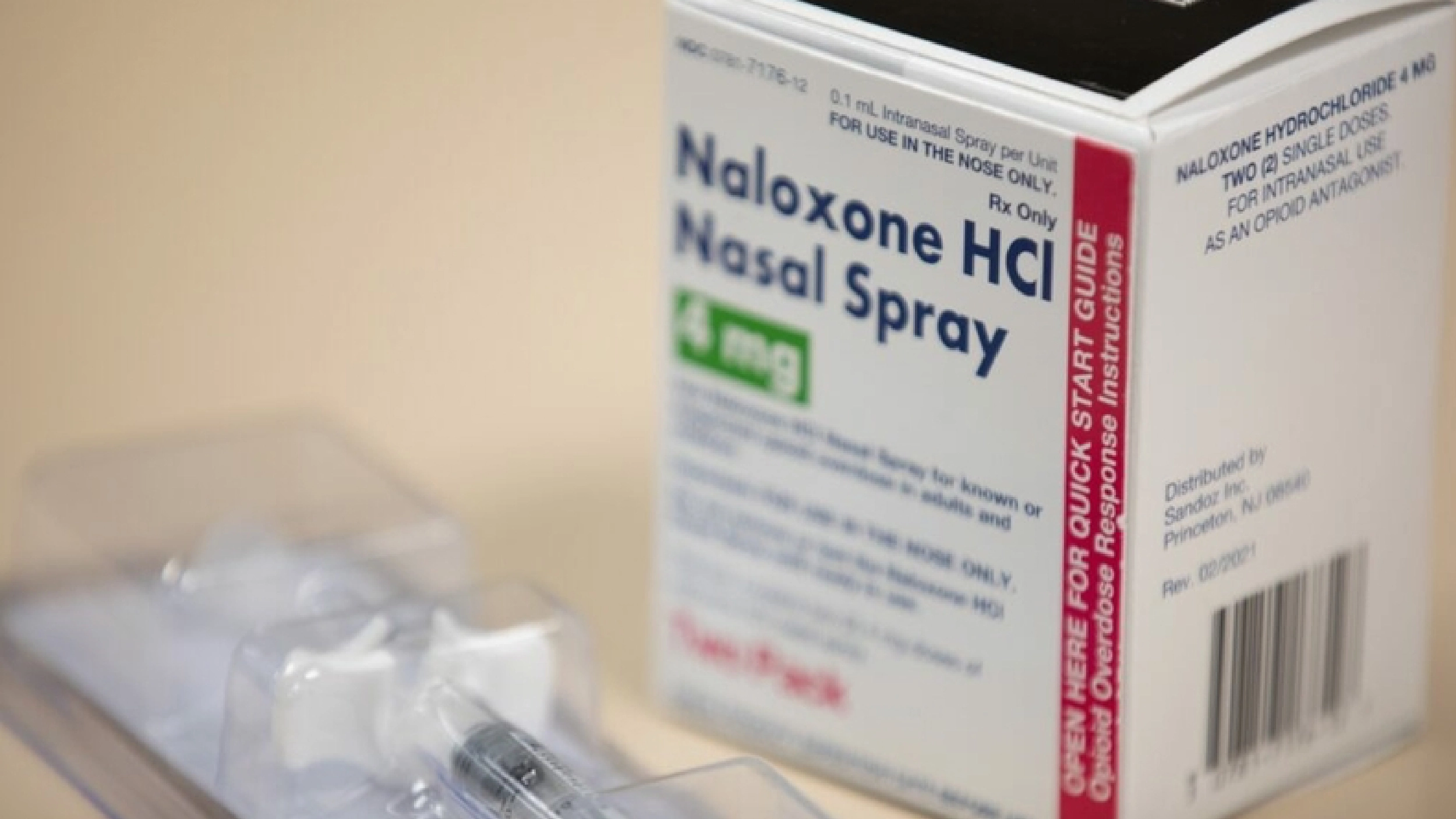
A Guide To Repairing Family Relationships
Discover expert tips for repairing family relationships and fostering healthy connections with The Recovery Team.

Heroin addiction is a serious problem that can seriously impact the lives of those struggling with it. When people start using heroin, they are likely looking for an intense experience that feels different from what they’re used to.
However, some key risk factors can increase your chances of becoming addicted to heroin, and effective treatments can help get you back on track.
Read more to explore the causes, risk factors, and effects of heroin addiction. You require professional treatment if you are an addict to heroin.
The Recovery Team is one of the best rehab centers in the United States that offer effective addiction treatment plans in a comfortable environment.
Heroin addiction is a serious and life-threatening problem that requires a comprehensive treatment program. Treatment services can include counseling, therapy, medication, and other interventions.
Treatment programs should be tailored to the patient’s needs and continuously updated as new research becomes available.
The long-term success of treatment for heroin addiction depends on the willingness and dedication of the participant and their family members to support their recovery. Treatment may include counseling, group therapy, and medication therapies.
There are also detoxification programs that can help people recover from heroin addiction. Treatment programs at The Recovery Team provide patients with ample resources and support groups to achieve lasting success.
You can find effective treatment programs to overcome heroin or any other drug addiction through The Recovery Team. Learn more about our addiction treatment programs by calling us at (800) 817-1247.
Heroin addiction is a serious problem that can lead to severe health complications. Signs and symptoms of heroin addiction can include:
Additionally, people who are addicted to heroin may experience decreased muscle function and increased risk for infections.
It is important for anyone suffering from heroin addiction treatment to seek help as soon as possible so they can start recovering and rebuilding their life.
The decision to seek treatment for heroin addiction is difficult, but it should be made based on the individual’s unique circumstances. There is no one correct answer, but there are some things to consider when making this decision.
First, it is important to understand that heroin addiction can be highly addictive and difficult to overcome. Treatment will require a lot of hard work and willpower, and people addicted to heroin are likely to experience significant setbacks along the way.
If you feel like you cannot live without heroin, seeking treatment may be your best option.
Heroin addiction is a serious problem that can be difficult to overcome. If you are a loved one of someone addicted to heroin, there are many things you can do to help them.
First, it is important to understand the drug itself and what causes people to become addicted. Next, you must provide support and resources as your loved one attempts to recover.
Finally, it is important to monitor your loved one’s progress and be there for them every step of the way.
Heroin addiction is a serious problem affecting individuals and communities across the United States. Read more to explore some of the causes of heroin addiction and how you can help prevent it from happening to you or a loved one.
From the environment to genetics, read on to learn about some of the root causes of heroin addiction. Then, take action by learning about treatments and resources available to you.
Family history is one of the causes of heroin addiction. According to research, people with a family history of addiction are three times more likely to become addicted to heroin.
The study also found that people who use opioids (like heroin) tend to use them in response to unresolved issues from their childhood.
One issue that often comes up when looking at family history is trauma. Many people who become addicted to heroin struggle with significant trauma in their lives- usually stemming from events like abuse or neglect.
When these traumas remain unresolved, they can lead to feelings of helplessness and bitterness.
One of the main contributing factors to substance use disorder is the addictive potential of the substance itself. Heroin, for example, is one of the most addictive substances available.
It produces intense pleasure and euphoria, leading people to keep using it despite its negative consequences.
The more someone uses heroin, the more tolerant they become of its effects. This means they need to use more and more of the drug to get the same high. Eventually, this can lead to physical dependence and addiction.
Heroin is an illegal and highly addictive opiate derived from the poppy plant. It is one of the most widely abused drugs in the United States. Its abuse can lead to significant physical, psychological, and social health problems.
Several factors contribute to the development of heroin addiction, including genetics and environment. Heroin is a highly addictive drug, and people who are addicted to it struggle with intense cravings for the drug.
Several risk factors are associated with heroin addiction, and one of the most significant is drug availability. When heroin is readily available, it increases the chances that people will use it and become addicted.
Heroin addiction is a serious problem in many communities, and it’s important to understand the factors that contribute to its development. Reducing the availability of drugs like heroin can significantly impact the number of people who become addicted.
Social pressure is one of the most common risk factors for heroin addiction. Heroin is often seen as a glamorous drug in popular culture, and young people can feel immense pressure to try it. This pressure can come from friends, peer groups, celebrities, and influencers.
Once someone succumbs to this pressure and tries heroin, they may find themselves quickly addicted. The drug’s powerful effects can create a need for more and more of the drug, leading to destructive behaviors and a downward spiral.
If you or someone you know is facing social pressure to try drugs, it’s important to reach out for help before it’s too late.
Individuals who are addicted to heroin may feel isolated and alone, and this can lead to a spiral of drug use and addiction. Without family or friends to turn to, people addicted to heroin may feel like they have nowhere to turn.
This isolation can make it difficult to recover from addiction and make relapse more likely. There are many resources available that can help you or your loved one get on the road to recovery.
Heroin is a powerful and highly addictive drug that has caused devastating effects on individuals and communities. From physical and mental health issues to financial strain, the impact of heroin addiction can be far-reaching and severe.
Read on to learn more about the realities of heroin addiction and what needs to be done to tackle it. Look at the implications for society and how you can address this growing problem.
The effects of heroin addiction on your safety are profound and far-reaching. This powerful drug can quickly take over your life, leading you down a path of destruction.
Chronic users may develop collapsed veins, infection of the heart lining and valves, abscesses, liver disease, and pneumonia. They are also at an increased risk of contracting HIV and other diseases. Heroin addiction can also lead to death.
The most obvious effect of heroin addiction is its toll on relationships. People suffering with addiction often lie, steal, and manipulate those closest to them to get their fix.
The shame, guilt, and secrets associated with addiction can drive a wedge between even the strongest bonds. In worst-case scenarios, addiction can lead to violence and abuse.
If you or someone you love is struggling with heroin addiction, know that you are not alone. There is help available. Seek a support group or counseling service to rebuild your relationships and life.
The effects of heroin addiction on employment are significant. Many people who are addicted to heroin struggle to keep a job. They may miss work often, be late or absent, and have difficulty concentrating or completing tasks. As a result, they may get fired or laid off.
Even if they don’t lose their job, their productivity is likely to suffer, which can lead to demotion or a lower salary. In addition to the impact on their career, people with heroin addiction may also have difficulty maintaining other aspects of their life.
Their relationships may suffer due to their drug use, and they may have financial problems due to the cost of their addiction. Heroin addiction can also lead to legal problems, further complicating someone’s life and making it difficult to maintain employment.
The effects of heroin addiction can be devastating both physically and mentally. Chronic users may experience collapsed veins, abscesses, and infections of the heart lining and valves.
They are also at increased risk for liver, kidney, and pulmonary complications, as well as certain types of cancer.
Mentally, heroin addiction can lead to depression, anxiety, and other mental health disorders. It can also impact cognitive functioning and decision-making abilities. People addicted to heroin often engage in risky behaviors that can put themselves and others in danger.
If you or someone you know is struggling with heroin addiction, please seek help from a professional treatment provider.
Heroin addiction is a serious problem that affects millions of people around the world. It can have a devastating impact on individuals and their families, leaving them struggling to find solutions.
Fortunately, there are treatment programs available that offer hope to those who have been unable to overcome addiction on their own.
The first step in overcoming heroin addiction is to detoxify the body of the drug. This can be done through a medical detox program, which will help to manage the withdrawal symptoms and make the detox process as comfortable as possible.
Withdrawal symptoms can be difficult to deal with, and a medical detox program will provide you with the support and care you need to get through them. The staff at a medical detox facility will be able to monitor your vital signs and ensure you are as comfortable as possible.
They will also be able to provide you with any necessary medications to help manage your withdrawal symptoms.
There are many different types of residential rehab programs for heroin addiction, each with its unique treatment approach. However, all residential rehab programs share a common goal to help the addict recover from their addiction and live a drug-free life.
Most residential rehab programs last for 30 days, although some may be shorter or longer depending on the needs of the individual. During their stay, patients will receive around-the-clock care and support from medical and mental health professionals.
They will also participate in group therapy and individual counseling sessions to address the underlying causes of their addiction.
Many different types of therapies can be effective in treating heroin addiction. Some common therapies include:

Discover expert tips for repairing family relationships and fostering healthy connections with The Recovery Team.

Discover practical tips on how to set boundaries with people in this expert guide from The Recovery Team.

Naloxone saves lives. The Recovery Team shares how to reverse an opioid overdose with this drug.
Heroin use or addiction is a serious problem that requires professional treatment. Various treatment options are available, depending on the severity of the addiction.
Inpatient detoxification and rehabilitation programs are often necessary for those with severe addiction. These programs provide around-the-clock care and monitoring, which can be vital for successful recovery.
Outpatient programs may also be appropriate for some individuals, depending on their level of addiction and other factors.
Treatment typically includes individual and group therapy and education about addiction and recovery. Medications may also be used to help manage withdrawal symptoms and cravings.
Many different types of treatment are available for people addicted to heroin. The most important thing is to find a treatment that works for the individual.
Heroin addiction treatment usually begins with detoxification, which is the process of getting rid of the drugs in the body. This can be done through medication or other means.
After detoxification, the next step is usually rehabilitation, which involves therapy and counseling to help the person recover from their addiction.
Many different types of rehabilitation programs are available, so it is important to find one that works well for the individual.
There is no one-size-fits-all answer to the question of what is the best opiate addiction treatment. However, certain treatment modalities have been shown to be effective in treating this disease.
These include medication-assisted treatment (MAT), cognitive behavioral therapy (CBT), and 12-step programs. MAT involves using FDA-approved medications such as buprenorphine and naltrexone to help reduce cravings and withdrawal symptoms.
CBT is a form of therapy that helps patients identify and change negative thought patterns contributing to their addictive behaviors. 12-step programs provide support and structure for individuals as they work to overcome their addiction.
Whichever approach is chosen, it must be tailored to the individual’s needs to maximize its effectiveness.